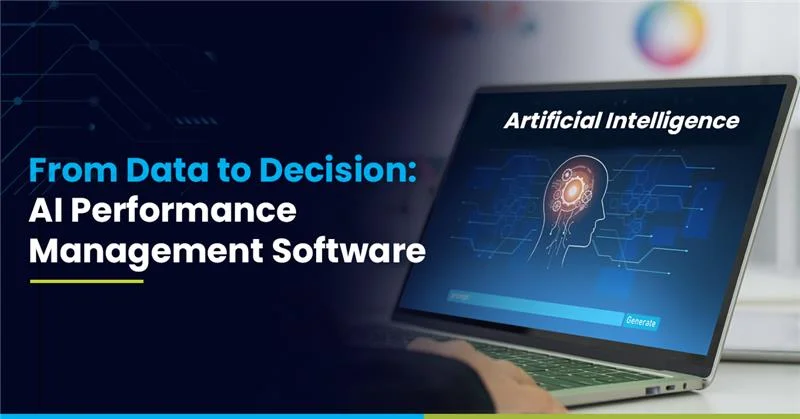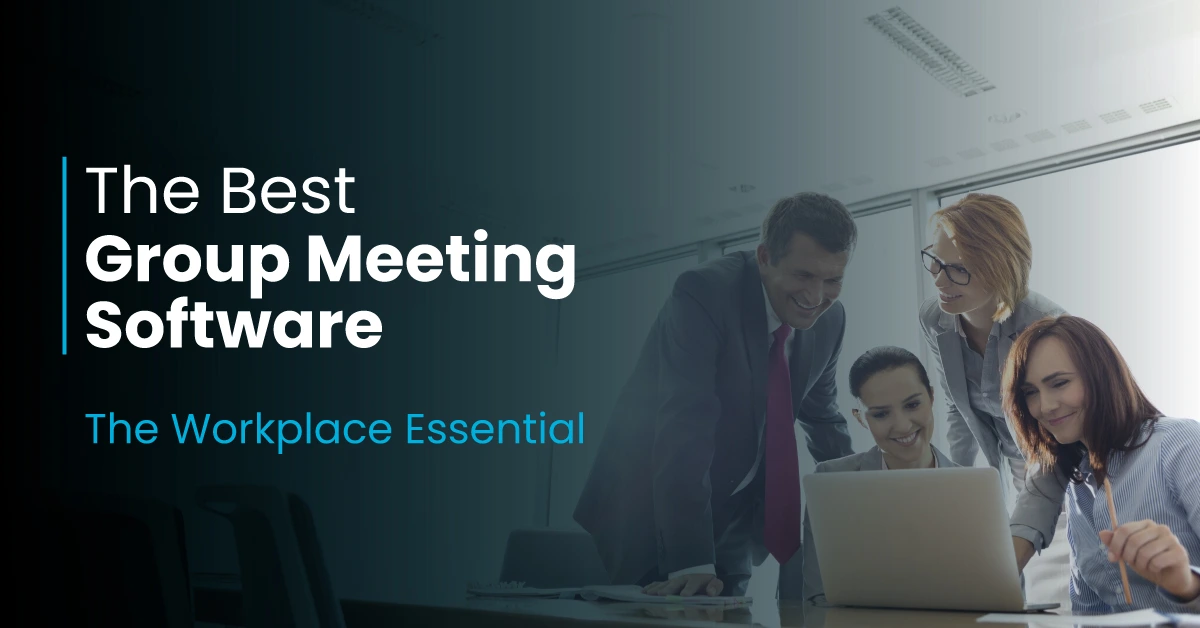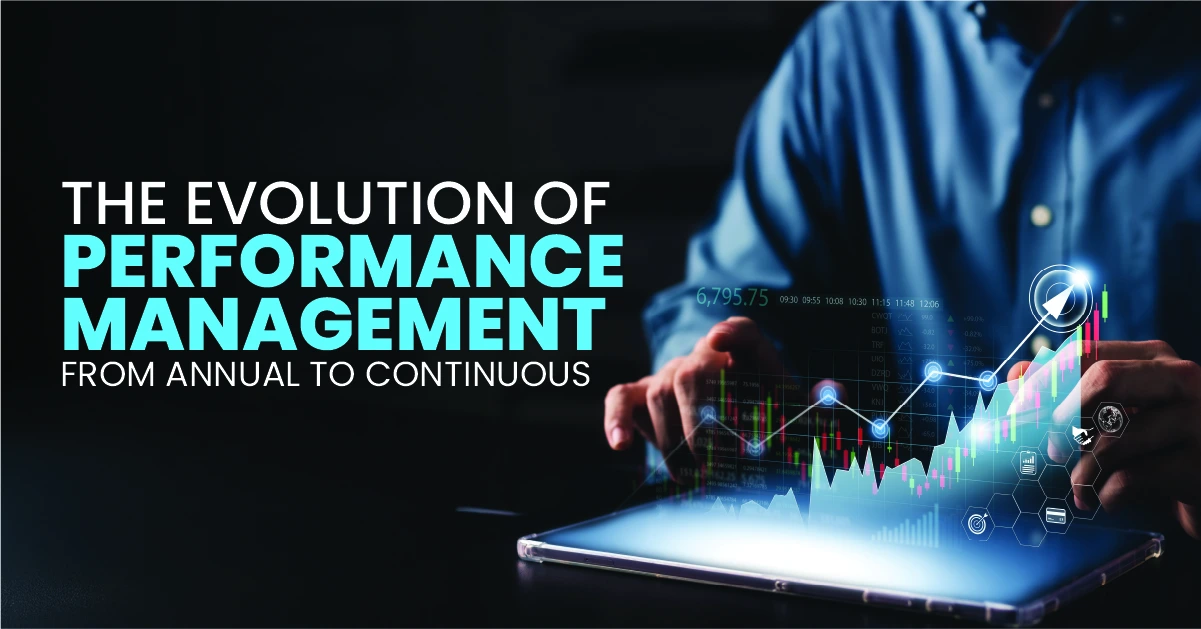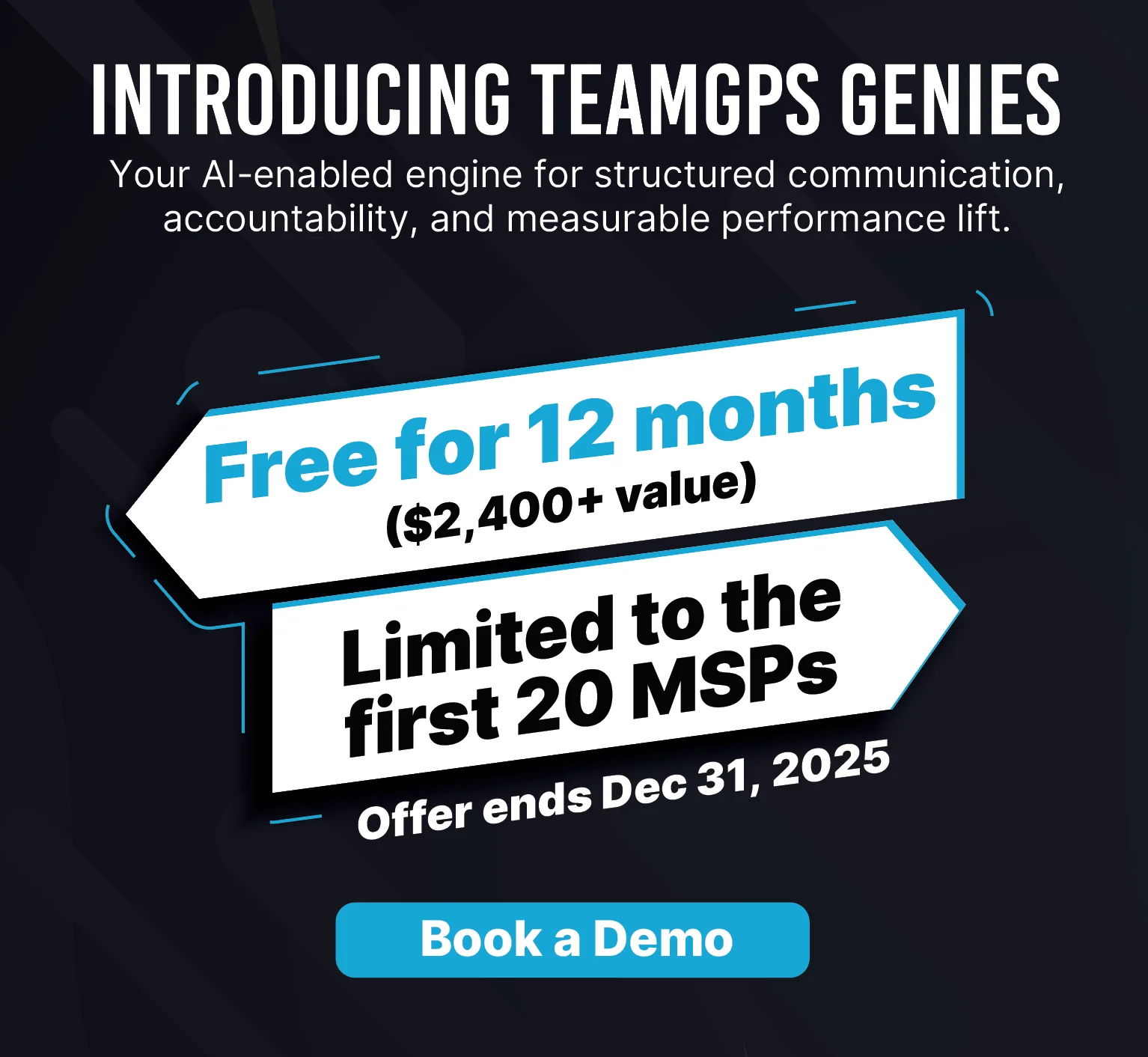Performance Management Software is at a breaking point. In the U.S., as per a Gallup report, only 31% of employees were engaged in their work in 2024, the lowest level in a decade.
That single number says it all. Traditional performance reviews aren’t working. Outdated annual appraisals, inconsistent feedback, and manager “gut feelings” are fuelling disengagement, turnover, and frustration across organizations.
But here’s where the shift happens: companies embracing AI-powered performance management software are moving beyond broken review cycles to build continuous, data-driven cultures. Employees know exactly where they stand, managers make fairer decisions, and leaders see real-time insights that drive performance and growth.
This isn’t about replacing human judgment—it’s about enhancing it with intelligence that turns data into actionable clarity.
What is Performance Management Software in the AI Era?
Performance management software in 2025 looks nothing like the clunky annual review systems of the past. Today’s AI-enhanced platforms transform how organizations track, analyze, and improve employee performance in real-time.
Evolution from Traditional Performance Management Software
Remember those dreaded annual reviews? The ones where managers scrambled to remember what employees accomplished six months ago? Those days are officially over.
Traditional performance management software focused on documentation and compliance. Managers filled out forms, employees received ratings, and everyone hoped for the best until next year. The problem? 86% of employees and executives identify poor collaboration and inefficient communication as the main reasons for workplace failures.
Modern performance management software operates on completely different principles:
- Continuous feedback loops replace annual check-ins. Employees receive regular input on their progress, making course corrections possible before small issues become major problems.
- Goal setting and tracking happen in real-time. Instead of setting goals in January and forgetting about them until December, teams use dynamic OKR systems that adapt as business needs change.
- Employee development becomes personalized. Rather than generic training programs, AI analyses individual performance patterns and recommends specific skill-building opportunities.
The integration with talent management systems means performance data flows seamlessly into succession planning, compensation decisions, and organizational alignment strategies. This holistic approach ensures that performance management software serves strategic business objectives, not just HR compliance.
Why AI-Powered Performance Management Software Matters Now
Today’s workplace challenges demand smarter solutions. Remote teams need different management approaches than traditional office environments. Skills gaps are widening faster than training programs can address them. Employee retention has become a competitive advantage that requires data-driven strategies.
The data overload problem is real. Managers have access to more employee performance information than ever before, project completion rates, collaboration metrics, learning progress, peer feedback, and customer satisfaction scores. But without AI to process this information, it becomes noise instead of insight.
AI-powered performance management software solves this by identifying patterns humans miss, predicting performance trends before they become problems, and providing specific recommendations for improvement. Instead of drowning in data, managers get clear, actionable intelligence that drives better decisions.
How AI Transforms Performance Management Software Capabilities
AI doesn’t just digitize traditional performance management, it completely reimagines what’s possible when you combine human insight with machine intelligence.
Intelligent Goal Setting and OKR Management
Setting effective goals has always been more art than science. Managers struggled with making objectives specific enough to be measurable but flexible enough to adapt to changing priorities. AI changes this equation entirely.
Team GPS, an AI-driven performance management software platform from IT By Design, feature integration represents the next generation of goal management. The system analyzes historical performance data, current business priorities, and individual employee capabilities to generate SMART goals that are both challenging and achievable. Instead of generic objectives like “improve sales performance,” the AI suggests specific targets like “increase qualified lead conversion rate by 15% through enhanced discovery call techniques.”
Real-time progress dashboards provide predictive analytics that show whether goals are on track before quarterly reviews. If an employee’s task completion rate drops below historical averages, the system flags potential issues and suggests interventions. This proactive approach prevents performance problems rather than just documenting them.
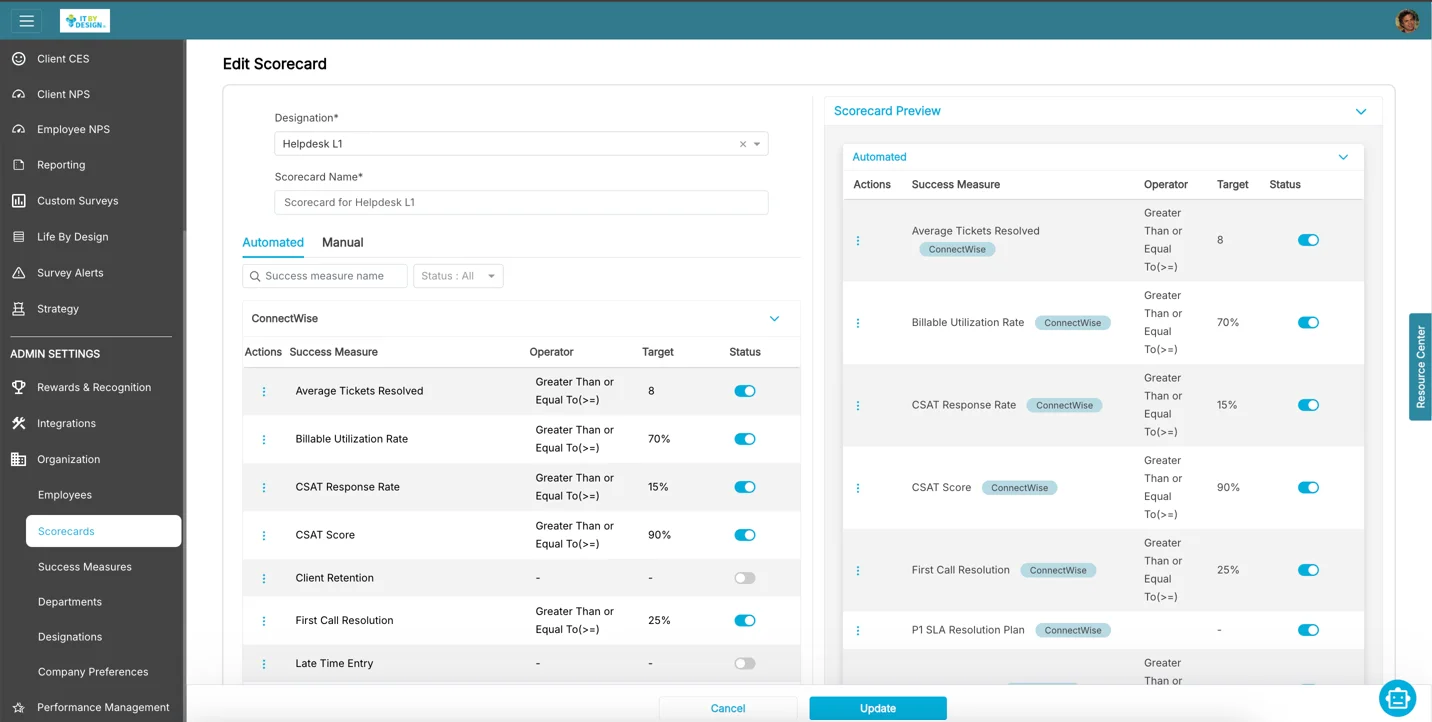
Organizational alignment becomes automatic through intelligent cascading objectives. When leadership adjusts strategic priorities, the AI maps how those changes should flow through different departments and individual goals. This ensures everyone’s daily work contributes to broader organizational success.
Continuous Feedback and 360-Degree Performance Insights
Traditional feedback systems relied on managers remembering to give input and employees being comfortable asking for it. Both assumptions often proved false, leading to communication gaps that festered over time.
AI-driven Team GPS revolutionizes feedback through AI-driven analysis and sentiment tracking. The system monitors communication patterns, project collaboration, and peer interactions to identify when feedback is needed most. Instead of scheduled check-ins that may miss critical moments, employees receive input when it’s most valuable.
Automated feedback prompts help managers provide consistent, constructive guidance. The AI analyzes successful feedback patterns and suggests conversation starters, specific examples to reference, and development opportunities to discuss. This scaffolding helps managers become better coaches without requiring extensive training.
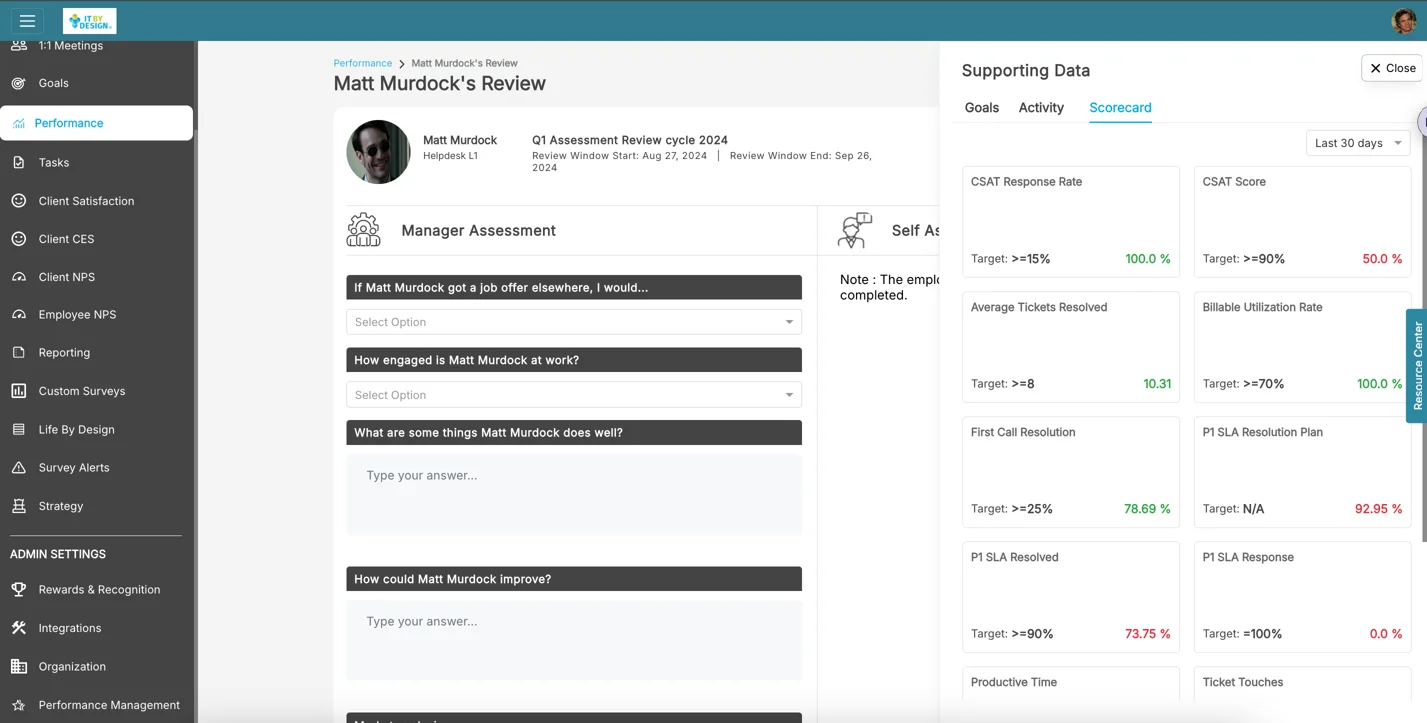
Real-time performance calibration across teams addresses bias and inconsistency in evaluations. The system identifies when similar performance receives different ratings across departments, flagging potential bias issues and ensuring fair treatment for all employees.
Predictive Analytics for Employee Development
Perhaps the most powerful aspect of AI-enhanced performance management software is its ability to predict future performance trends and development needs before they become critical.
Team GPS includes sophisticated skills gap analysis that examines current role requirements, future business needs, and individual performance patterns to identify learning opportunities. Instead of generic training recommendations, employees receive personalized development plans based on their specific strengths, improvement areas, and career aspirations.
Career path prediction uses historical data from similar roles to show employees potential progression opportunities. The system identifies which skills and experiences typically lead to advancement, creating clear roadmaps for professional growth.
Performance trend analysis provides early intervention alerts when engagement or productivity metrics begin declining. Rather than waiting for annual reviews to address issues, managers receive notifications when employees need additional support or recognition.
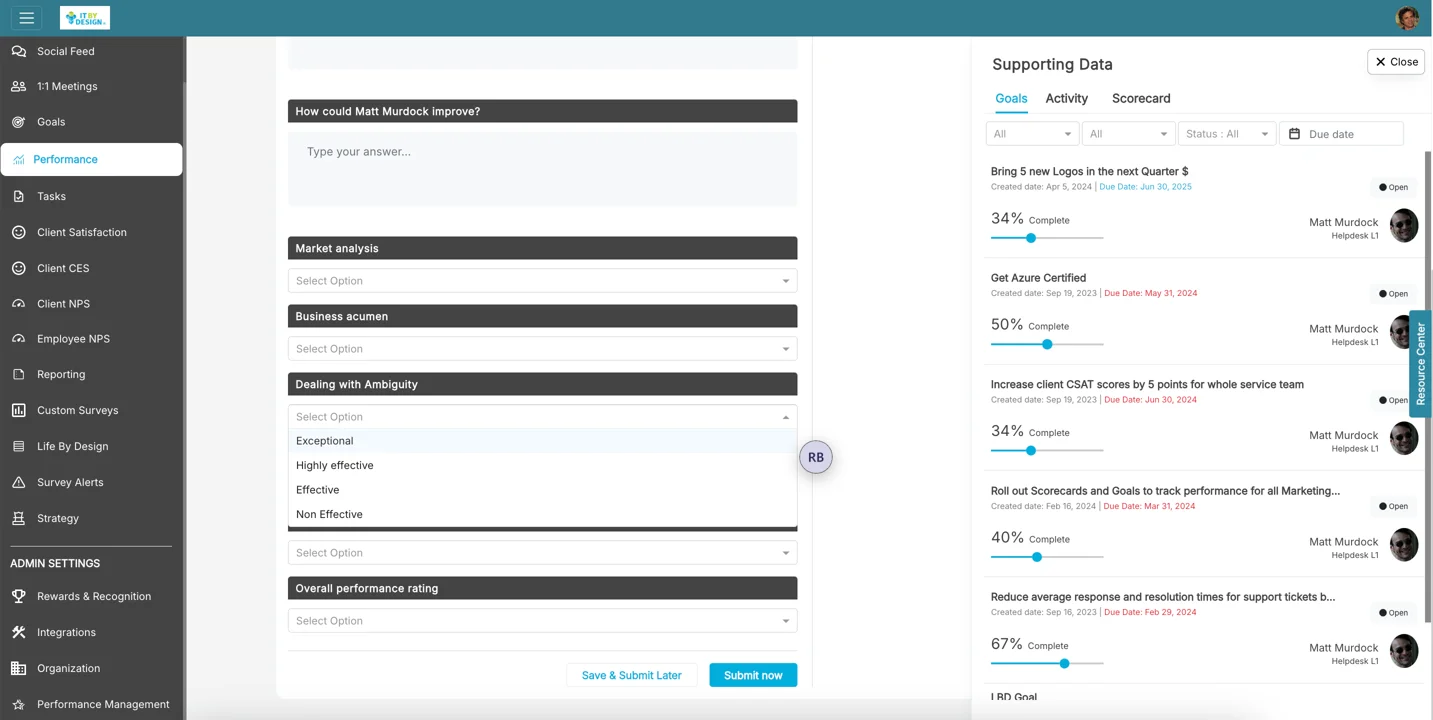
Why Modern Teams Need AI-Enhanced Performance Management Software
The business case for AI-driven performance management goes far beyond HR efficiency—it’s about creating competitive advantages through better people decisions.
Data-Driven Decision Making for Managers and HR
Moving beyond gut feelings to evidence-based management transforms how organizations develop their people. When promotion decisions are based on comprehensive performance analytics rather than visibility bias, companies see better outcomes and fewer discrimination claims.
Performance analytics identify top performers across different metrics—not just the loudest voices in meetings or the most visible contributors. This data-driven approach helps organizations retain their best talent by recognizing contributions that might otherwise go unnoticed.
Real-time insights enable coaching interventions when they’re most effective. Instead of waiting for problems to escalate, managers can address skill gaps, motivation issues, or workload imbalances as soon as data indicates potential concerns.
ROI measurement for training and development programs becomes precise rather than aspirational. Organizations can track which learning investments produce the best performance improvements and adjust their development strategies accordingly.
Employee Engagement Through Intelligent Performance Management Software
Transparency in goal setting and performance tracking addresses one of the biggest employee complaints about traditional performance management: not knowing where they stand until it’s too late to improve.
When employees can see their progress toward goals in real-time, they feel more control over their professional success. This transparency builds trust between managers and team members, creating psychological safety that enables better performance.
Personalized feedback and recognition systems ensure that individual contributions are acknowledged in ways that matter to each person. The AI learns what types of recognition motivate different employees and suggests appropriate rewards and acknowledgments.
Clear visibility into career progression opportunities helps employees understand how their current performance connects to future advancement. This connection between daily work and long-term goals increases engagement and reduces turnover.
Enhanced manager-employee communication through structured check-ins ensures that important conversations happen regularly rather than only during crisis moments. The AI provides conversation prompts and tracks follow-up actions to ensure commitments are kept.
When Should Organizations Implement Performance Management Software?
Timing matters when implementing new performance management software. Organizations that wait too long miss opportunities for improvement, while those that move too quickly may struggle with adoption challenges.
Signs Your Team Needs Performance Management Software Upgrade
Recognizing when your current performance management approach has reached its limits is crucial for maintaining competitive advantage and employee satisfaction. The following indicators suggest it’s time to invest in modern performance management software:
Team Size and Complexity Challenges:
Growing team sizes create complexity that manual tracking simply cannot handle effectively. When managers oversee more than 8 to 10 direct reports, important performance details inevitably fall through the cracks. Consider these warning signs:
Manager Overload Indicators:
- Managers spend more than 10 hours per month on performance-related administrative tasks
- Performance reviews are consistently late or incomplete across multiple departments
- Managers admit they don’t have time for regular one-on-one meetings with all direct reports
- Performance feedback becomes generic rather than specific and actionable
- Manager burnout increases as they struggle to track multiple employee development plans manually
Organizational Inconsistency Problems:
Inconsistent performance review processes across departments create fairness issues and legal risks that can severely damage organizational culture and expose companies to discrimination claims:
Process Inconsistency Warning Signs:
- Different managers use different criteria or standards for similar roles
- Performance ratings vary significantly between departments for comparable work
- Some teams conduct quarterly reviews while others stick to annual assessments
- Promotion criteria and timelines differ across functional areas
- Employee complaints about unfair treatment or lack of development opportunities increase
Retention and Engagement Red Flags:
High employee turnover often stems from unclear expectations, inadequate feedback, or lack of development opportunities—all problems that modern performance management software can address:
Critical Retention Metrics to Monitor:
- Turnover rates above 15% annually (varies by industry)
- Exit interview feedback consistently mentions lack of career development or unclear expectations
- High performer departures where managers were unaware of dissatisfaction
- Increased time-to-fill positions due to knowledge loss from departing employees
- Declining employee engagement scores related to recognition and development
Strategic Planning Limitations:
Lack of data for strategic workforce planning decisions handicaps organizations in competitive talent markets. Without performance analytics, companies cannot:
- Identify succession candidates for key leadership positions
- Predict which employees are flight risks before they resign
- Analyze skills gaps that will impact future business initiatives
- Measure the effectiveness of training and development investments
- Connect individual performance trends to team and organizational outcomes
Performance Data Quality Issues:
Poor data quality in performance management creates cascading problems throughout the organization:
Data Quality Warning Signs:
- Performance information exists in multiple disconnected systems
- Managers maintain separate spreadsheets or documents for tracking employee progress
- Historical performance data is difficult to access or analyze
- Performance trends and patterns are invisible without manual analysis
- Decision-making relies on anecdotal evidence rather than comprehensive data
When organizations experience multiple indicators from these categories, the business case for performance management software becomes compelling from both operational efficiency and strategic effectiveness perspectives.
Best Practices for Performance Management Software Implementation
Team GPS features integration includes comprehensive onboarding and user adoption strategies that address common implementation challenges. Change management becomes crucial when shifting from traditional review processes to continuous performance management.
Cultural transformation requires more than software installation. Organizations need to communicate why performance management is changing, how it benefits everyone involved, and what behaviors will be rewarded in the new system.
Training programs for managers and employees must address both technical skills and mindset shifts. Managers need to learn how to interpret performance analytics and provide better coaching, while employees need to understand how to engage with continuous feedback processes.
Integration with existing HR systems and workflows prevents the software from becoming another isolated tool that creates more work rather than streamlining processes.
How AI Integration Transforms Team GPS Performance Management Software
Team GPS represents the cutting edge of AI-enhanced performance management, with features that are already developed and delivering results for forward-thinking organizations.
Intelligent Performance Coach – Beyond Traditional Performance Management Software
The Performance Coach AI Feature generates personalized performance snapshots for each employee by analyzing patterns across goals, scorecards, recognitions, and task completion data. Instead of generic performance summaries, managers receive specific insights about what’s working well and what needs attention for each team member.
This AI coach highlights trends that human observation might miss—like an employee who consistently exceeds individual goals but struggles with collaborative projects, or someone whose performance dips during specific types of assignments. These insights enable more targeted coaching conversations.
The system identifies strengths and improvement areas through comprehensive data analysis, then provides coaching tips and recognition opportunities without requiring managers to guess what might be effective. This guidance helps managers become better coaches even without extensive leadership training.
Current Implementation Status: The Performance Coach AI is fully developed and in QA testing phase, meaning organizations can access this powerful capability immediately upon implementation.
Smart 1:1 Meeting Preparation with AI-Enhanced Performance Management Software
Meeting preparation often consists of managers frantically reviewing notes five minutes before one-on-ones, leading to superficial conversations that miss important development opportunities.
The 1:1 prep agent automatically scans employee performance data over specified review periods, providing structured talking points and surfacing critical action items that need attention. This preparation ensures that every one-on-one conversation focuses on the most important performance and development topics.
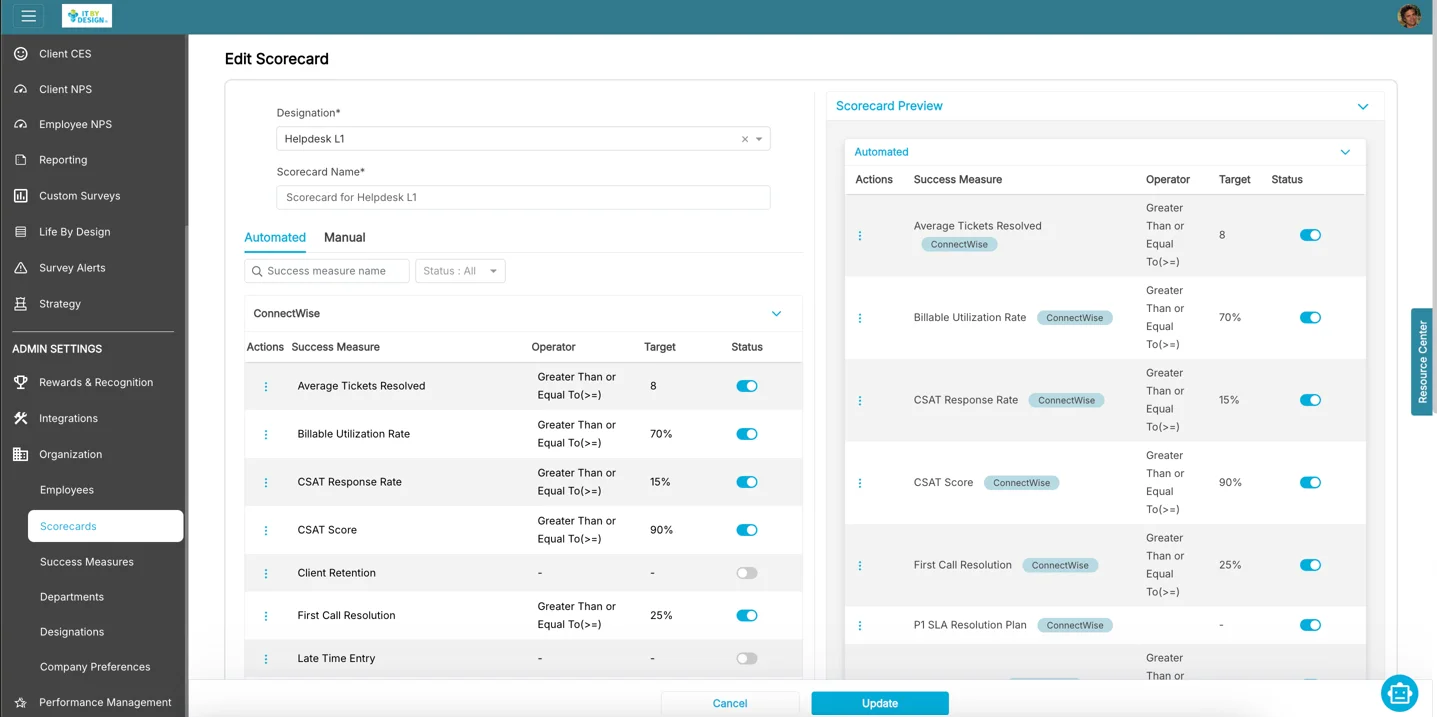
The system identifies engagement signals and overdue tasks that require immediate attention, preventing small issues from becoming major problems. Managers receive specific conversation starters and follow-up recommendations based on each employee’s current performance trajectory.
The 1:1 analysis agent review past meetings to detect conversation patterns and missed follow-ups, ensuring that commitments made in previous discussions are tracked and completed. This accountability loop strengthens manager-employee relationships and demonstrates that conversations lead to action.
Current Status: POC completed with email templates ready for implementation, meaning this feature is immediately available for organizations implementing Team GPS performance management software.
Revolutionary AI Features Now Available in Team GPS Performance Management Software
The most exciting developments in AI-powered performance management are already available, not theoretical future capabilities.
Natural Language Query System for Performance Management Software Users
The AI bot in Team GPS allows instant answers to complex performance questions through natural language processing. Instead of generating reports or searching through dashboards, managers can ask questions like “Who hasn’t received recognition recently?” or “Which team members are at risk of missing their quarterly goals?” and receive immediate, accurate answers.
This capability pulls integrated data from all Team GPS modules and systems, providing comprehensive insights without requiring users to understand database queries or report generation. The AI understands context and provides relevant follow-up suggestions based on the information requested.
Slack, MS Teams, and in-platform chat integration means these powerful analytics are available wherever managers are already working. Performance insights become part of natural workflow rather than separate tasks that compete for attention.
Current Implementation: POC completed with video demonstration available, showing exactly how this natural language interface transforms performance management efficiency.
Advanced Data Integration for Comprehensive Performance Management Software
The Halo PSA Integration demonstrates how AI-enhanced performance management software can connect with existing business systems to provide complete performance pictures. Real-time performance metrics and project completion tracking flow automatically into performance evaluations.
This integration eliminates manual data entry while ensuring that performance assessments reflect actual work outcomes rather than subjective impressions. Project success rates, client satisfaction scores, and billable hour efficiency become part of comprehensive performance profiles.
Automated performance data synchronization across platforms means that performance information stays current without requiring additional administrative work from managers or employees.
Current Status: POC completed and in QA testing phase, meaning this advanced integration capability is available for immediate implementation.
The Future of AI-Driven Performance Management Software
Team GPS continues advancing machine learning algorithms that make performance predictions more accurate and recommendations more personalized. Enhanced predictive analytics will identify performance trends earlier and suggest interventions with greater precision.
Automated coaching recommendations based on historical patterns will help managers provide more effective guidance with less effort. The AI learns what coaching approaches work best for different personality types and performance challenges.
The seamless integration ecosystem expands monthly, connecting with more business systems and providing increasingly comprehensive performance insights.
Transform Your Team Performance with AI-Driven Team GPS
The future of team performance lies in intelligent, data-driven systems that turn insights into action. Traditional performance reviews and manual tracking methods can’t compete with AI-powered performance management software that provides real-time insights and predictive analytics.
Team GPS’s AI-driven performance management solution eliminates common challenges through:
- Intelligent goal alignment and tracking systems that adapt to changing business priorities
- Predictive performance analytics that identify issues before they impact results
- Seamless integration with existing workflow tools that eliminates administrative burden
- Real-time coaching recommendations that help managers become more effective leaders
- Natural language query capabilities that make complex performance data instantly accessible
Why You Need to Experience Team GPS at Our Upcoming Demo Event:
- Live demonstration of AI-powered performance features that are already developed and tested
- See how predictive analytics transform team management effectiveness and employee engagement
- Learn implementation strategies from successful organizations that have achieved measurable results
- Get exclusive access to early adopter pricing and dedicated support for smooth transitions
[Register Now for Team GPS Demo Event – Transform Your Performance Management Today]
Don’t let your competition gain the advantage with superior performance management capabilities. The organizations that are already leveraging AI to unlock their team’s full potential aren’t waiting for perfect solutions—they’re implementing proven systems that deliver results today while continuously improving through machine learning.
Performance management software isn’t just about HR compliance anymore—it’s about creating competitive advantages through better people decisions, higher engagement, and more effective development. Team GPS provides the AI-powered foundation that transforms good teams into exceptional ones.
FAQs (Frequently Asked Questions)
Q: What is performance management software and how does it work?
A: Performance management software automates performance tracking, goal setting, and feedback collection in one centralized platform. AI-enhanced versions provide predictive insights and personalized recommendations.
Q: How does AI improve traditional performance management software?
A: AI provides predictive analytics to identify issues early, intelligent goal setting that adapts to priorities, and bias reduction through data-driven evaluations. It also offers personalized development recommendations based on performance patterns.
Q: What features should I look for in performance management software?
A: Look for real-time goal tracking, continuous feedback mechanisms, performance analytics dashboards, and seamless integration with existing HR systems.
Q: When do organizations typically need performance management software?
A: Organizations need it when managing growing teams, experiencing inconsistent review processes, or facing high turnover due to unclear expectations.
Q: How long does it take to implement performance management software?
A: Implementation typically takes 4 to 8 weeks depending on organization size and customization needs.

